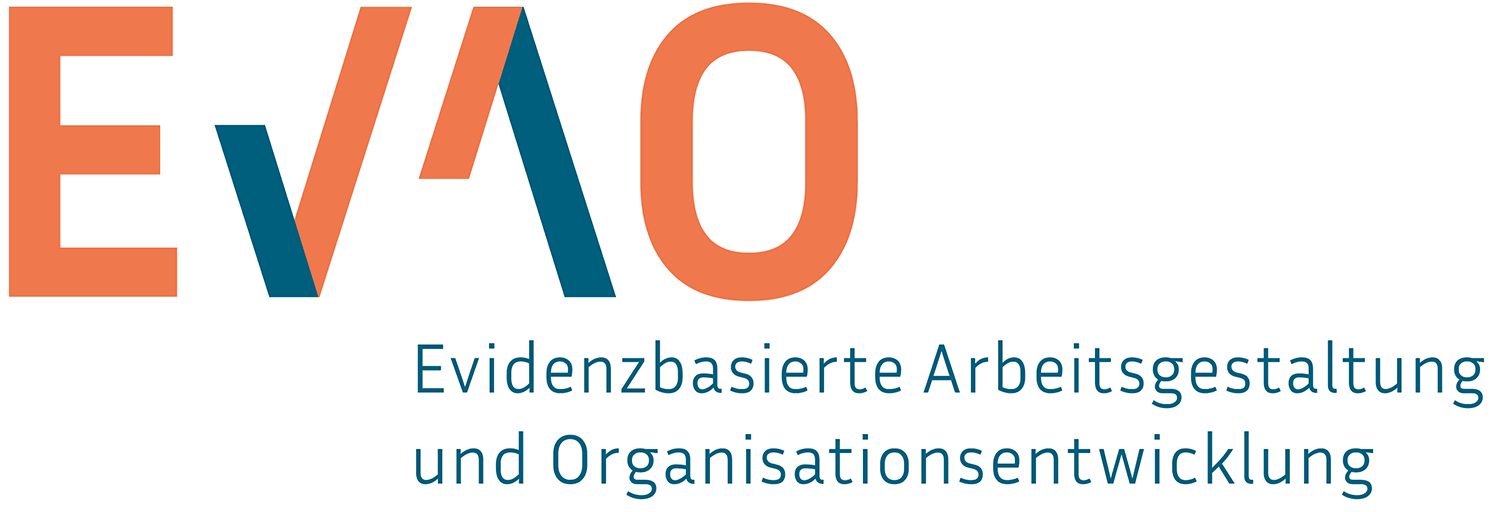Publikationen
Ausgewählte Konferenzbeiträge
Stempel, C.R. (2023). Digital Leadership: Challenges and Resources for Leading Hybrid Teams. Vortrag bei der Konferenz The Future is Now: the changing world of work (EAWOP, European Association of Work and Organizational Psychology). Kattowice (25.05.2023)
Stempel, C.R. (2022). Homeoffice gestalten: Differenzielle Zusammenhänge zwischen Anpassungsverhalten und Belastungsfaktoren für Führungskräfte und Mitarbeiter*innen. Vortrag & Symposium beim 52. Kongress der Deutschen Gesellschaft für Psychologie (DGPs). Hildesheim (10.09- -15.09.2022).
Stempel, C.R. (2022). Fehlbelastungen und Ressourcen für Führungskräfte und die Rolle von Kontextfaktoren in der GBU Psyche. Diskussionsrunde auf der 34. Internationalen Fachtagung Psychologie menschengerechter Arbeitsgestaltung. Visselhövede (30.06. -03.07.2022).
Stempel, C.R. & Rigotti, T. (2017). Bad work –bad leaders? Work characteristics as antecedents of abusive supervision. Presentation at the 18th congress of the European Association of Work and Organizational Psychology (EAWOP), Dublin, Ireland (17.05 –20.05.2017).
Stempel, C.R. &, Rigotti, T. (2016). Der Teufelskreis destruktiver Führung. Vortrag auf dem 50. Kongress der Deutschen Gesellschaft für Psychologie (DGPs), Leipzig (18.09. – 22.09.2016).
Stempel, C.R. (2013). Same behavior – different consequences? Gendered perceptions of leadership and consequences for employees health and wellbeing. Presentation at the Small Group Meeting on Gender Equality in Organizations (EAWOP), Frankfurt (09.10. – 11.10.2013)
Aktuelle Forschungsprojekte
Projekt gesundheitsrelevanter Schutz- und Schwellenwerte (PROGRESS)
Leitung des Forschungsprojektes DigiLead am Institut für Arbeit – Bildung –Digitalisierung
Initiatorin und Leiterin des Projektes „Home Sweet Home“ zu Belastungs- und Unterstützungsfaktoren im Homeoffice
Internationale Lehr- und Forschungskooperationen
Spanische Validierung des FGBU- Fragebogens (Dettmers & Krause, 2020). Kooperation mit der Universidad Nacional de Educación a Distancia.
Internationales Forschungsprojekt „Rewarding and Sustainable Health Promoting Leadership“ (ReSuLead) mit Kooperationspartnern an der Mälardalen Högskola in Schweden und der Universität Tampere in Finnland (2010 – 2014).
Mitglied des Editorial Board des Journal of Economics and Management
Ausgewählte Publikationen
Dettmers, J., & Uglanova, E. (2022). Job Crafting
Lopper, E., Dettmers, J., & Hoppe, A. (2022). Examining Nonlinear Effects of Crafting Social Resources on Work Engagement–the Moderating Role of Exhaustion
Yokoyama, K., Nakata, A., Kannari, Y., Nickel, F., Deci, N., Krause, A., & Dettmers, J. (2022). Burnout and poor perceived health in flexible working time in Japanese employees: the role of self-endangering behavior in relation to workaholism, work engagement, and job stressors
Dettmers, J., & Stempel, C. R. (2021). How to Use Questionnaire Results in Psychosocial Risk Assessment: Calculating Risks for Health Impairment in Psychosocial Work Risk Assessment
Dettmers, J., & Plückhahn, W. (2021). Suddenly Working From Home!
Dettmers, J., & Krause, A. (2020). Der Fragebogen zur Gefährdungsbeurteilung psychischer Belastungen (FGBU)
Dettmers, J., & Bredehöft, F. (2020). The ambivalence of job autonomy and the role of job design demands
Dettmers, J., Wendt, C., & Biemelt, J. (2020). Already exhausted when arriving at work? a diary study of morning demands, start-of-work-day fatigue and job performance and the buffering role of temporal flexibility
Dettmers, J., & Clauß, E. (2018). Arbeitsgestaltungskompetenzen für flexible und selbstgestaltete Arbeitsbedingungen
Janneck, M., Jent, S., Hoppe, A., & Dettmers, J. (2018). Der EngAGE-Coach: Eine Online-Intervention zur Förderung von Arbeitsgestaltungs-und Gesundheitskompetenz
Uglanova, E., & Dettmers, J. (2018). Sustained effects of flexible working time arrangements on subjective well-being
Dettmers, J. (2017). How extended work availability affects well-being: The mediating roles of psychological detachment and work-family-conflict
Dettmers, J., Vahle-Hinz, T., Bamberg, E., Friedrich, N., & Keller, M. (2016). Extended work availability and its relation with start-of-day mood and cortisol
Dettmers, J., Bamberg, E., & Seffzek, K. (2016). Characteristics of extended availability for work: The role of demands and resources
Vahle-Hinz, T., Bamberg, E., Dettmers, J., Friedrich, N., & Keller, M. (2014). Effects of work stress on work-related rumination, restful sleep, and nocturnal heart rate variability experienced on workdays and weekends
Dettmers, J., Kaiser, S., & Fietze, S. (2013). Theory and practice of flexible work: Organizational and individual perspectives. Introduction to the special issue
Dettmers, J., Vahle-Hinz, T., Friedrich, N., Keller, M., Schulz, A., & Bamberg, E. (2012). Entgrenzung der täglichen Arbeitszeit–Beeinträchtigungen durch ständige Erreichbarkeit bei Rufbereitschaft
Bamberg, E., Dettmers, J., Funck, H., Krähe, B., & Vahle‐Hinz, T. (2012). Effects of On ‐ Call Work on Well ‐ Being: Results of a Daily Survey 1
Stempel, C.R., Dettmers, J., & Rigotti (2023). The domino effect: How leader job characteristics as antecedents of transformational leadership facilitate follower job characteristics.
Dettmers J., & Stempel C.R. (2021). How to Use Questionnaire Results in Psychosocial Risk Assessment: Calculating Risks for Health Impairment in Psychosocial Work Risk Assessment
Stempel, C.R., Biemelt, J., & Dettmers, J. (2021). Never off duty – The role of supervisors in the relationship between extended availability and subordinate well-being
Stempel, C. R. & Dettmers, J. (2018). Nicht nur Gesundheit! Zusammenhänge zwischen psychischen Belastungen und Mitarbeiterbindung
Stempel, C.R., Rigotti, T., & Mohr, G. (2015). Think transformational think female
Stempel, C.R., & Siestrup, K. (2022). Suddenly telework! Changes in working conditions, mediating job crafting activities and employee’ well-being.
